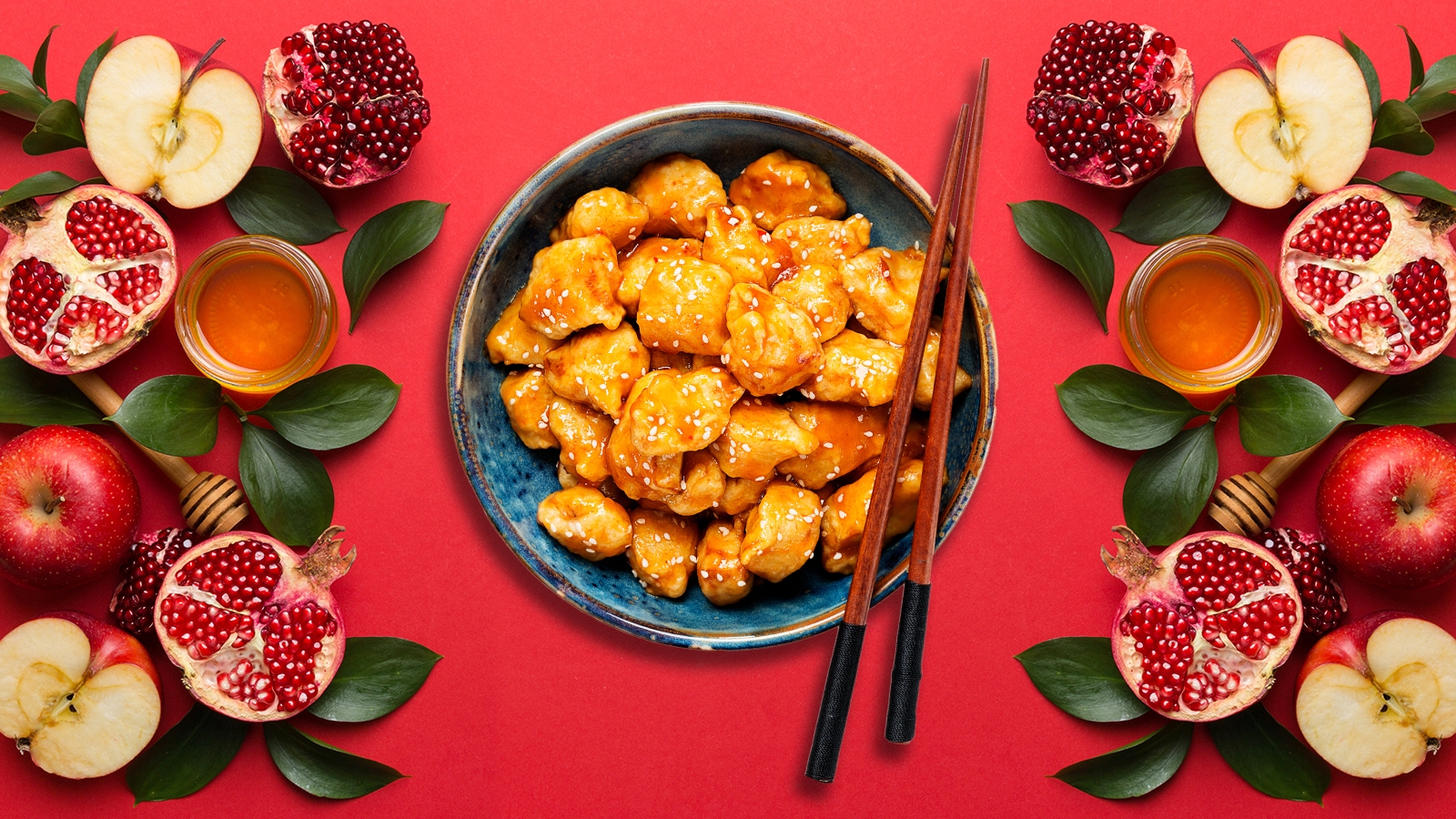As a Jewish North West Londoner, I have always been fascinated with the Jewish American tradition of eating Chinese takeaway on Christmas day. Whilst the Americans are tucking into one of my all-time favorite cuisines, the English Jews can often be found eating roast turkey with all the trimmings.
But recently, at our local Chinese restaurant, I was struck by just how well the flavors of Chinese food lend themselves to Rosh Hashanah: from honey chicken to sweet and sour fish, fried fish head (although, I can’t guarantee that I will be partaking in that one!), slow-cooked brisket and, of course, the obligatory apple fritters.
After marrying into a traditional Sephardic family, the same traditional High Holiday dishes come out year after year. Don’t get me wrong, I love fesenjan chicken (chicken in pomegranate and walnut sauce), green curry, beef chatani, rice dishes, kibbeh and leek and spinach fritters (just to name a few), followed by an excessive amount of honey cake and sticky baklava, but this year, I’d like to change things up. The High Holidays seem like the perfect time to muscle in on this American “Jewish Christmas” tradition.
First up: honey chicken. Easily replicated, there is very little not to like about chicken that is dusted with cornflour, fried and then covered in a sticky sauce made from honey, soy, garlic and ginger. This is also a great dish to serve on a two-day festival, as the sauce is thick and will happily sit on a hot plate until ready to eat. Plus, we all know how good Chinese food the following day is.
The Nosher celebrates the traditions and recipes that have brought Jews together for centuries. Donate today to keep The Nosher's stories and recipes accessible to all.
Fish heads have long been a tradition on the Rosh Hashanah seder plate, symbolizing the head of the new year and bringing prosperity to all those who dare to take a piece. Everyone in our house tends to hold their nose and eat, hoping that they will be rewarded for their endeavor. In China, however, the fish head has long been a delicacy and eaten in a variety of different ways, from coated in flour and deep fried before being sprinkled with fried garlic and chillies, or being braised in a stock of ginger, soy and sesame. Perhaps if I cook mine in the same way, it will not evoke a table of scrunched up noses?! Watch this space.
Of course, no Rosh Hashanah meal is complete without a brisket, which is also proudly on the menu of our local Chinese restaurant, slow cooked with soy, star anise, five spice and plenty of honey. Quick and easy to prepare, it’s a winner.
One of my earliest memories is going to a Chinese restaurant with my family. Every time we went, I thought that it was amazing that there were only three things on the dessert menu: apple fritters, banana fritters or tinned lychee. Apple fritters have always been my favorite, and strike me as the perfect dessert to serve on Rosh Hashana to a table of people who have just eaten enough to sink a battleship. Adding ice-cold soda water and a touch of baking powder to the batter will ensure a thin and crispy fritter. Even if they go a little soft before serving, a few minutes in the oven will crisp them up again before pouring over the obligatory honey.
I adore the High Holidays and everything that goes with them, from the decorations, the cooking and, most importantly, creating memories and traditions. To me, traditions are not only passed down, but created; new quirks and personal touches that our children will remember when they grow up. This year, Chinese food will take pride of place on our Rosh Hashanah table, and I am so looking forward to our very first Chinese New Year!



